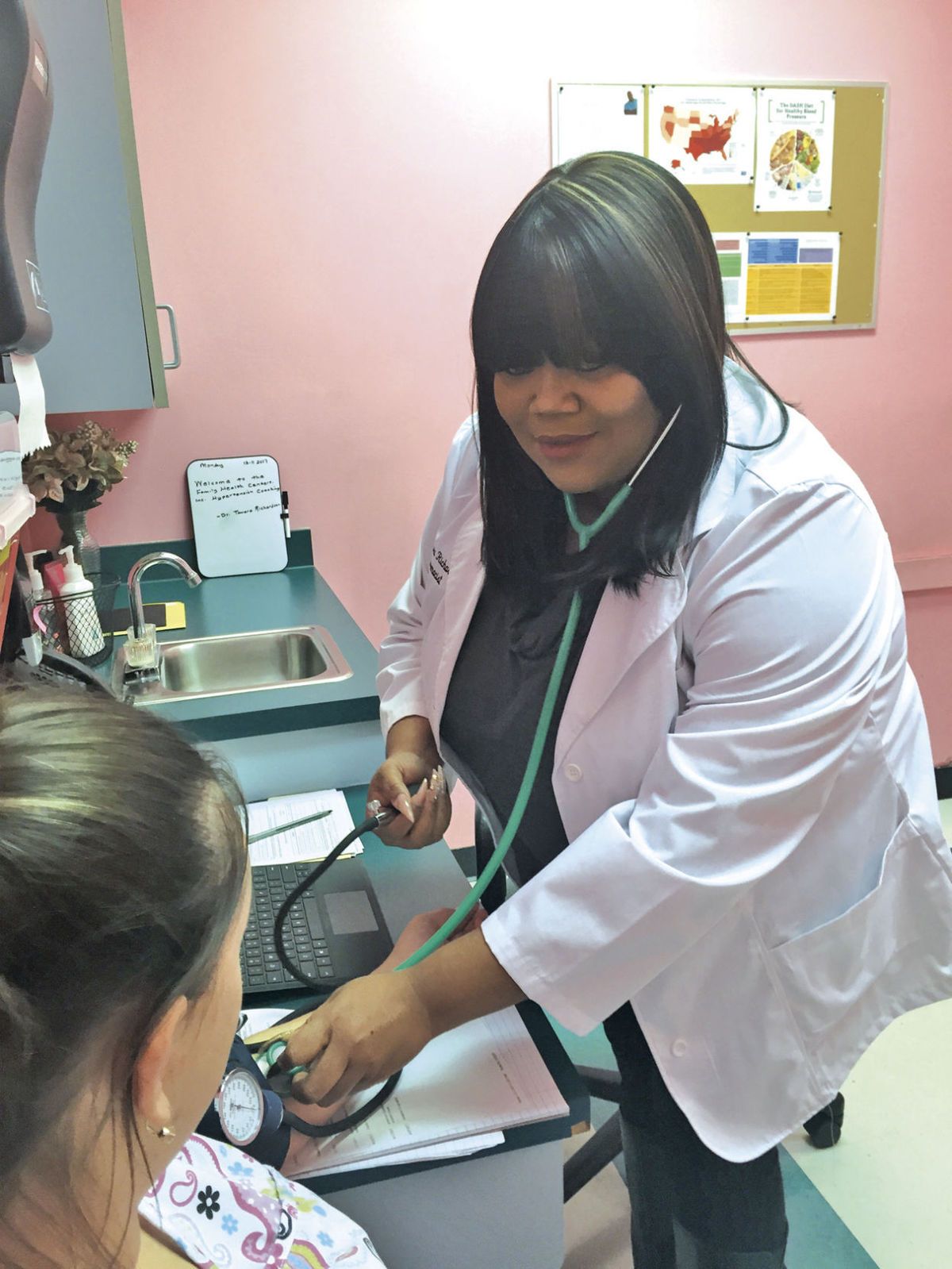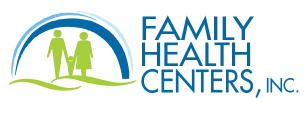
As part of its mission, the Family Health Centers Inc. has been participating in a Hypertension Coaching Program in partnership with the South Carolina Pharmacy Association. Under the program, a network of community pharmacists across 15 counties, including Orangeburg, Bamberg and Calhoun counties, provide free blood pressure control coaching to adults age 18 and over who have been diagnosed with high blood pressure. Dr. Tamara Richardson, pictured, is a pharmacist coach at FHC who assists patients involved in the program.
One of the state's largest community health centers is participating in a coaching program designed to help its adult patients better manage hypertension.
Family Health Centers Inc. works to serve the medically underserved and uninsured in Orangeburg, Bamberg, Calhoun and upper Dorchester counties through seven comprehensive primary care sites.
As part of its mission, the FHC has been participating in a Hypertension Coaching Program in partnership with the South Carolina Pharmacy Association. The program is funded as part of a four-year grant from the state Department of Health and Environmental Control that ends in September 2018.
Under the program, a network of community pharmacists across 15 counties, including Orangeburg, Bamberg and Calhoun counties, provide free blood pressure control coaching to adults age 18 and older who have been diagnosed with high blood pressure.
"We're trying to empower hypertensive patients to better self-manage their hypertension by basically teaching them about the disease itself, as well as medication adherence and lifestyle modifications. Patients will benefit by getting hopefully better blood pressure control," said Dr. Natalie Nelson, PharmD, BCACP.
Dr. Rhonda Hill, director of DHEC's Division of Diabetes, Heart Disease, Obesity and School Health, said the Centers for Disease Control and Prevention has provided DHEC with $3.52 million in grant funding per year over the course of four years to support its programs.
"That's for all programs, not just the pharmacy piece," she said, noting that the Hypertension Coaching Program is given $215,000 for each year of the four-year grant.
She said while the grant funding ends next year, that won't be the end of the story.
"CDC has stated that we should be receiving another notice of funding opportunity for us to do another four- to five-year competitive application. We never want to kind of start something and leave," Hill said.
"We'll look into seeing how we can continue to work with any of the agencies or organizations that we're working with currently with this round of four-year funding, especially those that have really proven to have good measures and results as this one has," she said.
Nelson said while Dorchester County is not included in the 15-county service area, patients at FHC's St. George site are being served through the health center's decision to expand the program.
"To not exclude patients, we have expanded the program to reach all patients as well as possibly continuing the program even after the grant time period has ended," she said.
She is one of eight FHC pharmacists participating in the program. Patients are referred to them by FHC medical providers.
"The program is free, and patients also receive a free blood pressure monitor on their second visit. A pharmacist is able to see the patient for a total of five visits throughout the year. We try to do it within a two-week interval at all of our sites which have their own pharmacy coach," Nelson said.
Outside of its main Orangeburg site, the FHC operates six satellite sites in Denmark, Holly Hill, Neeses, St. George, St. Matthews and Vance.
Nelson said the state Pharmacy Association has provided participating pharmacists with training. Patients are offered training and support in not only properly managing their blood pressure, but taking blood pressure medication as directed and increasing physical activity and making healthier eating choices.
"It's definitely a unique program because when you hear about pharmacists, you think more about retail and just counting pills and filling prescriptions. So one of my specific main goals even as assistant director of pharmacy is to move the pharmacist into a more clinical realm, which is where we see more of our pharmacists ultimately heading," Nelson said.
She added, "We have a lot of clinically trained pharmacists from residency training to board certified and even certified diabetes educators. So we want to use that training and basically help our patients benefit from that as much as possible.
"I think we're the only federally-qualified health center that has all of our pharmacists on board with doing this particular program at all of our sites."
Nelson said hypertension is a "silent killer" that ranks among the top chronic diseases seen among patients in the FHC service population, making the coaching program very important.
She said uncontrolled blood pressure often leads to other conditions.
"We have seen more co-morbidities as a result of hypertension. That has definitely increased because hypertension can ultimately lead to renal failure … and it can also lead to other cardiovascular diseases, such as heart attacks and strokes," she said.
Hill said DHEC's work with the state Pharmacy Association helps it to move forward with its work to prevent obesity, diabetes, heart disease, stroke and health disparities.
Nelson said the goal of the coaching program is to provide patients with a better quality of life.
"Pharmacists don't really have provider status, but we are one of those medical professionals that is more accessible. When you go into an appointment, you only see that doctor or nurse practitioner for just those 30 minutes to an hour," she said.
"But you really have access to that pharmacist almost any time; therefore, we really would like to just kind of get our faces out there and let people know, 'Your pharmacist is here. We're more than just counting pills and putting a label on a bottle.'
